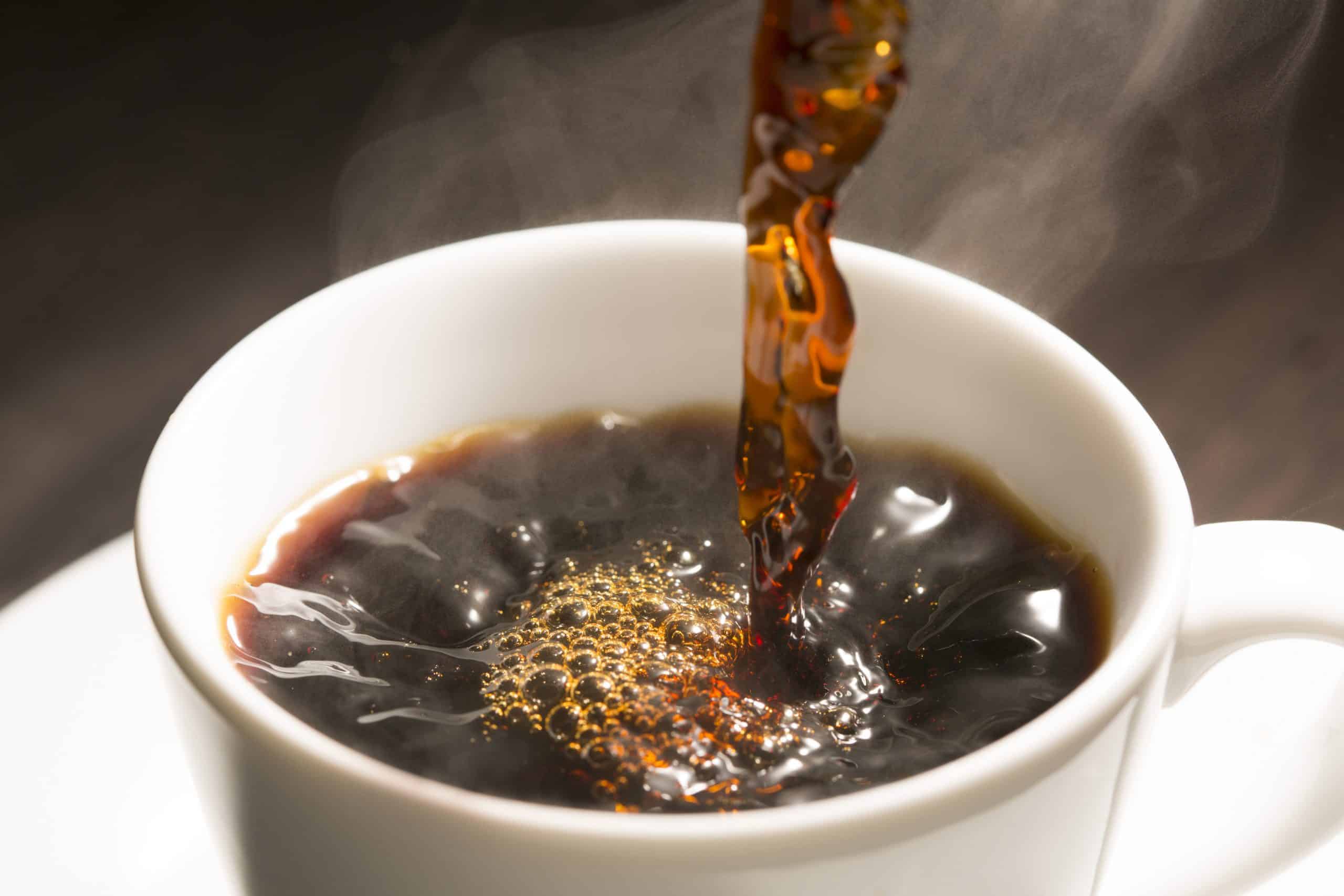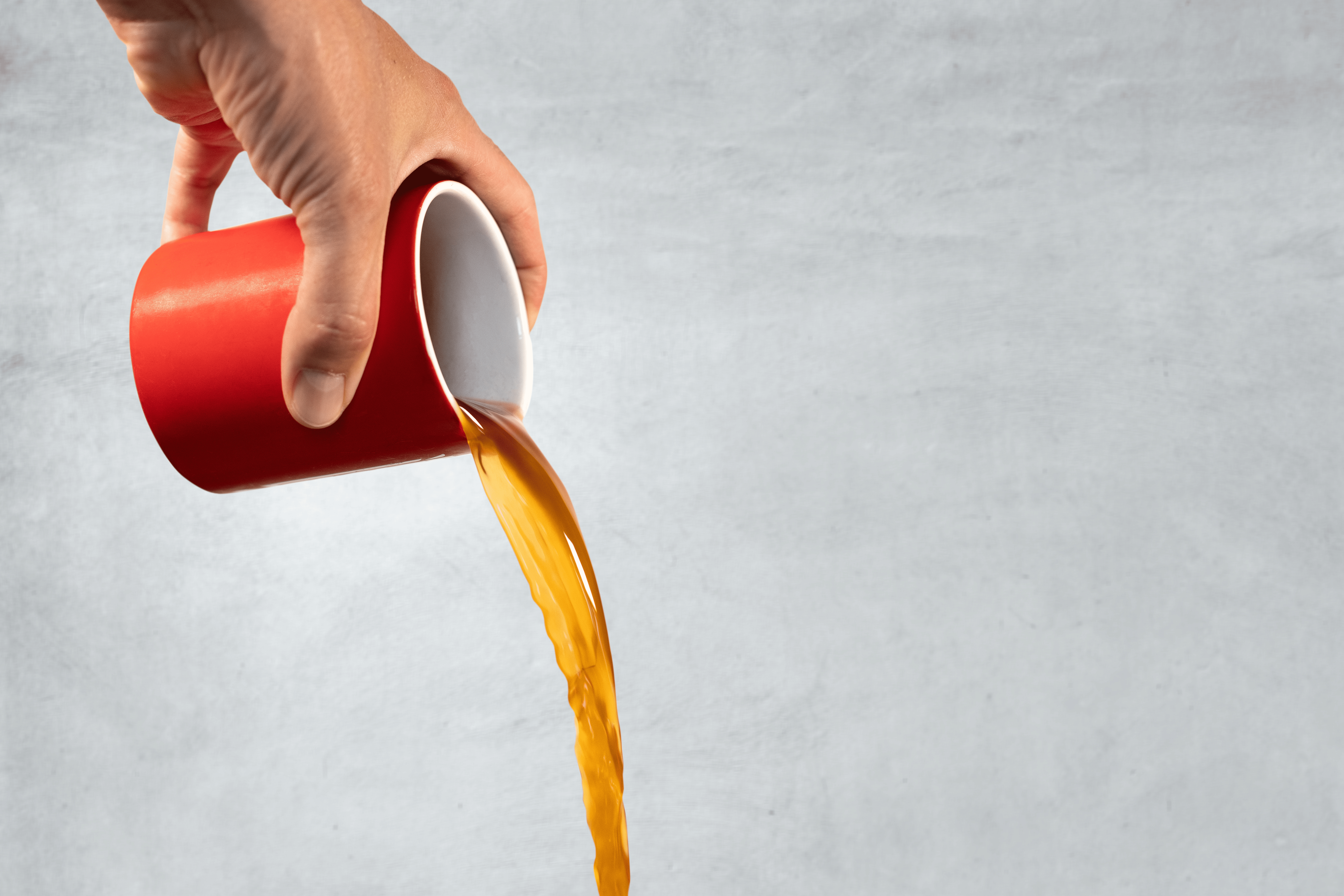According to the 2020 National Coffee Data Trends Market Research Series from the Specialty Coffee Association and the National Coffee Association, upwards of 40 percent of US residents add sugar or another sweetener to coffee. Too much sugar isn’t great for your health, which has inspired you to drink your coffee black or try to. How do you quit the sweet stuff?
6 tips for getting used to drinking black coffee without sugar:
- Don’t quit sugar cold turkey
- Change your coffee roast
- Make black coffee less bitter with salt
- Try various brewing methods
- Brew with Arabica Beans Over Robusta Beans
- Remember why you’re reducing sugar in the first place
In today’s article, we’ll delve deeper into the above tips so you can finally stop pouring mountains of sugar into your coffee. You might also convince your friends, family, and coworkers to enjoy black coffee!
Why Should You Try to Cut Sugar Intake?
Added sugar and your health are directly linked. The American Heart Association recommends six teaspoons of added sugar for women and nine teaspoons for men for a healthy diet. o put some more perspective to it, one teaspoon has 4 grams of sugar.
That isn’t much. You’re well over your limit if you add all the sugar from your coffee, midday treats, and sugary drinks. Too much sugar in your diet can lead to various health problems, including diabetes, obesity, and liver and heart disease. Those consuming less sugar have a lower risk of these diseases.
You may think artificial sweeteners are a great substitute for morning coffee. Some sugar substitutes include Aspartame, Saccharin, stevia, and Sucralose. Once considered safe, more and more research shows that these substitutes are not as great as we once thought. Consuming in small amounts is best if you cannot live without some sugary goodness.
Natural sugar alternatives are always preferred for your health, such as raw organic honey, maple syrup, agave syrup, or molasses.
Natural sugar alternatives are always preferred when it comes to your health, such as raw organic honey, maple syrup, agave syrup, or molasses.
Trying to Reduce Sugar and Drink Black Coffee? 5 Tips to Help!
1. Don’t Quit Sugar Cold Turkey
You like to think of yourself as the strong-willed type who can give up anything if you only believe in yourself. Yet quitting sugar is rarely so cut and dried like that.
The reason? Sugar could very well be addictive.
The evidence of such was reported, among other sources, in a 2008 publication of the Neuroscience & Biobehavioral Reviews.
According to the report: “‘ Food addiction’ seems plausible because brain pathways that evolved to respond to natural rewards are also activated by addictive drugs. Sugar is noteworthy as a substance that releases opioids and dopamine and thus might be expected to have addictive potential.”
That’s not all. Rutgers Center of Alcohol & Substance Use Studies cites a study from The Journal of Nutritional Neuroscience that involved rats who were given sugar. When the sugar was taken away from the rats, they were reported to have withdrawal-like symptoms.
These studies tell us that while eating sugar is not as severe as drug addiction, the way that your body and brain process the sweet stuff makes it like a drug.
If you want to quit sugar altogether or reduce your consumption, omitting it from your coffee is an excellent way to start. Yet doing it all at once will set you up for failure.
The change to black coffee should be a gradual one. You know how much sugar you take in your coffee. Start by reducing it by a small amount, less than a tablespoon.
Then, each day or each week, cut back more and more until you’re taking your coffee black. The slow regression of your morning sugar consumption will make the adjustment process much smoother.
2. Change Your Coffee Roast
Roast level significantly affects how coffee tastes. If you’re brewing with a dark roast, your morning cup of coffee will have the most intense flavors and bitterness. Using a darker roast coffee will cause you to try to cover up the bitter taste by adding flavored creamers and other added sugar.
Try switching to a lighter roast, possibly a medium roast, or even a light. Medium roast coffee produces a more well-rounded and less bitter coffee. Light roasts highlight the distinct flavor of the bean with a mellow body.
Click the link to read more about each roast level.

Click the link to read more about each roast level.
3. Make Black Coffee Less Bitter with Salt
What if even a new mug isn’t helping you overcome the bitterness of black coffee? All you need is some table salt to change the flavor. A pinch of salt, around 1/4 teaspoon, will neutralize the acidity that makes your black coffee so bitter.

Make sure you add the salt ahead of brewing the coffee. If you have poured a cup of black coffee and added salt, it might settle on the bottom and leave your drink gritty. Then you’ll detest black coffee even more. Read more here.
If you want to revise the flavor of your black coffee in other ways, you can always try some spices like cardamom, unsweetened cocoa powder, or nutmeg. They won’t make your coffee less bitter, but they improve the flavor without adding white sugar.
Related Reading: “10 Way to Flavor Your Coffee“
4. Try Various Brewing Methods
How do you brew your morning coffee? If you haven’t changed your method since switching from sugary coffee to black, that could be one reason why you don’t like the taste of the latter. The pour-over method is recommended for lighter brews, while several other methods work better for dark roasts.
If you don’t already have an espresso maker, investing in one could produce the perfect cup of coffee that you’ve been looking for. When you run coffee beans through an espresso maker, the taste of the beans comes through much louder and clearer than using other brewing methods.
You’ll also feel the caffeine much more intensely after brewing with an espresso maker. If you’re someone who needs two to three cups of coffee to wake up in the morning, you might be able to start your day with only one cup after you brew it in your espresso maker.
A French press is another recommended brewer for black coffee and other dark roasts. Since French press machines are available in all sorts of sizes, even if you have a small apartment, you can still brew café-quality coffee at home every day.
Make sure your coffee grounds are coarse. Take the filter out of the French press, add your beans, pour in hot water, and then put the filter back in. Wait for around 10 minutes, press on the filter, and you have delicious coffee.
Some of the above equipment can be a little expensive, admittedly. Before you spend the money, why not visit your favorite café and try black coffee brewed in all sorts of ways? Once you find your favorite brew, you can buy the necessary equipment to replicate that cup at home every morning.
5. Brew with Arabica Beans Over Robusta Beans
Coffee brewed with Arabica bean will taste much less bitter than coffee brewed with Robusta. When trying to cut the sugar from your coffee, ensuring you’re using high-quality arabica beans will decrease your need for sugar in the first place.
Although Robusta beans contain more caffeine, Arabica coffee beans are considered superior in taste. Coffee made with Arabica will have a smoother and sweeter taste.
6. Remember Why You’re Reducing Sugar in the First Place
If you’re cutting sugar out of your morning coffee, we’d bet that’s not the only place where you’re quitting the sweet stuff in your diet. We talked already about how sugar can be addictive, but that’s not the only reason to have less (or none) of it in your life.
As this Harvard Health article makes clear, the more sugar in your diet, the worse it is on your heart. The article talks about a 2014 study from JAMA Internal Medicine.
The study lasted for 15 years. The participants who consumed the most added sugar, which was over 20 percent of their added calories, were more likely to perish from cardiovascular disease at a rate of 38 percent compared to the participants whose added sugar calories were only eight percent.
Why is that? The liver processes all that sugar into fat, increasing your risk of both diabetes and fatty liver disease. The former can boost your heart disease risk.
Oh, and added sugar also raises your rate of inflammation, sometimes until it’s chronic. Your blood pressure can go up as well, and both these health issues also increase your chances of having heart disease.
Harvard Health says that the amount of added sugar you should consume per day is 150 calories, which is 36 grams or nine teaspoons. That recommendation comes from the American Heart Association.
Final Thoughts
Added sugar does our health no favors, causing complications that make a person more likely to develop heart disease. Yet sugar can be addictive, so quitting it isn’t easy.
It’s noble that you want to take your coffee black going forward, but the transition from sweeteners to none can be tough. The tips in this article will make the adjustment smoother.
Getting used to regular coffee can take some time, but your health is worth it!
Related Content
What is the Ideal Temperature for Coffee?
When attempting to create the perfect cup of coffee, many factors come into play: coffee beans, grind size, brew method, and coffee-to-water ratio, to name a few. Another detail to…
How To Know If My Coffee Maker Has Mold?
Most people love waking up to the smell and taste of a hot cup of coffee. It not only gives our bodies a wake-up boost from the caffeine but also…


